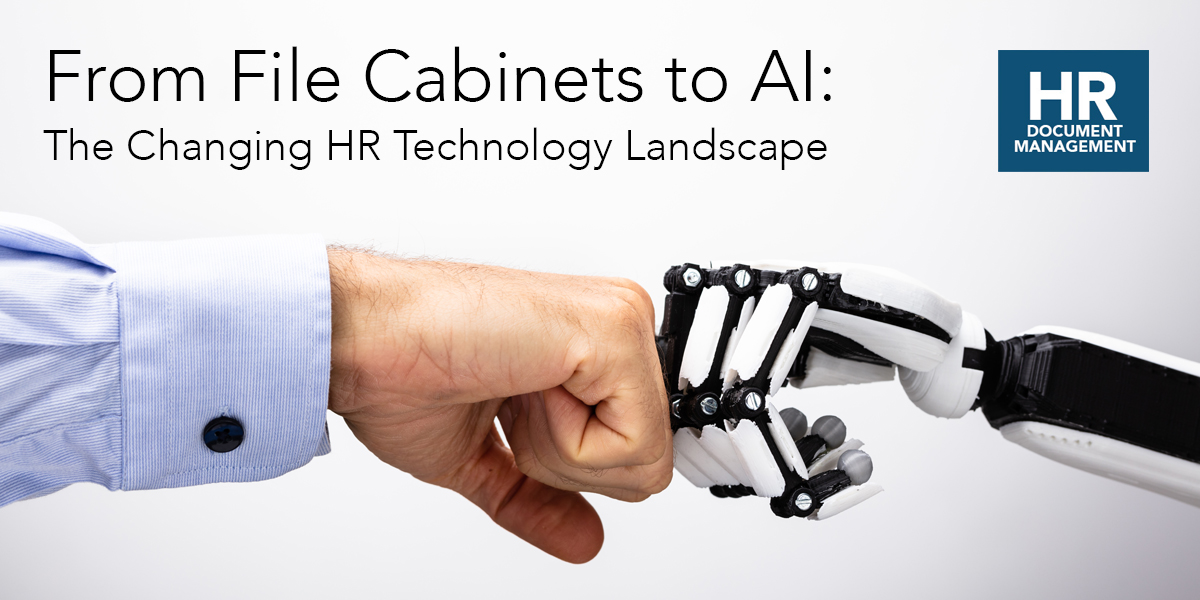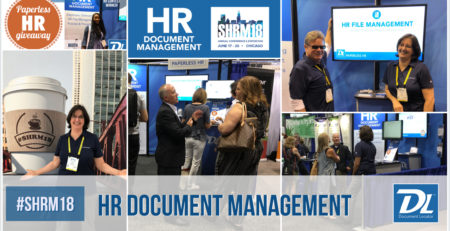Technology is rapidly changing our world. All aspects of life, from how we shop to how we communicate, are continually impacted by accelerating advancements in computing power and emerging technologies. Human resources is no exception. Over the last few decades, HR has transformed from single departments that mainly focused on hiring and payroll, to becoming an integral part of how a company grows and operates. Let’s take a look at how technology has changed the landscape of HR over the last 30 years.
Filing Cabinets and Paper: The Ghosts of HR Past
Prior to the 1990’s, the primary focus of most HR organizations was personnel administration. Early on, many organizations didn’t even use the term “human resources,” and were more commonly referred to as “personnel departments.” Before the widespread adoption of computer technology, a great deal of time and energy was required to manage administrative HR duties and HR filing. Repetitive, low-value tasks such as managing paper files and manually searching through file cabinets in the office file system made HR a very slow and limited endeavor.
The Personal Computer Revolution
During the 1990’s the widespread adoption of the personal computer allowed human resources to take a dramatic leap forward. Business management software and HR systems like HCM technology helped reduce the manual nature of personnel management. This helped HR departments move their focus beyond low level administrative tasks and instead concentrate on improvements in business as a whole. Finding qualified applicants, managing turnover, and improving employee development were becoming a much larger part of human resources operations.
The Internet and HR Automation
There is no doubt that the adoption of the Internet has greatly transformed the business landscape, and this is especially true when it comes to human resources. Online recruiting, remote working, Web access to benefits and payroll, and many other advancements have eliminated the piles of paperwork and stacks of employee information that HR workers once had to contend with. Through the use of cloud-based HR software, managers and employees alike can now easily (and remotely) search for and access the resources they need. Plus, many tasks that were once painfully repetitive can now be automated. Processes for managing employee self-service, time management, onboarding, recruitment, training, and many other HR tasks are now easily automated via cloud-based HR systems.
AI and the Future of HR
There is little doubt that in the coming years artificial intelligence will become just as revolutionary as the Internet itself. While the Internet and automation software have greatly reduced repetitive tasks for HR employees, artificial intelligence may add new dimensions of assistance that can further improve business management and employee experience. Here are a few ways AI might improve HR in the future:
- Personalized Employee Experiences
AI may be able to evaluate the needs of individual employees to provide an overall better work experience. For example, AI-based onboarding algorithms might be able to answer a new employee’s questions and recommend training programs that would get them up to speed more quickly. AI might also be able to help employees determine the best time to make vacation requests, where to find the best resources, and how to make other workplace decisions. - Recruitment
AI recruiters would be able to schedule interviews, answer candidates questions, and provide feedback all in real time. Plus, AI could potentially tap into multiple data sources to help organizations better profile candidates. - Employee Analysis
The ability to determine an employee’s cognitive state would be highly valuable to HR teams. AI could potentially provide an analysis of cognitive states such as anxiety levels, work engagement, and other patterns to help flag potential issues and improve employee satisfaction and retention. - Bias Removal
As much as employers strive to be as inclusive as possible, it’s more difficult to completely remove unconscious bias. AI could potentially assist in this matter to help employers rely more heavily and data-driven assessments.
Preparing for the Future of HR
The HR technology landscape is rapidly changing as disruptive technologies evolve at an ever increasing rate. While automation has reduced the amount of time spent on mundane tasks, and AI is quickly adding abilities to HR that were once impossible, it’s important that HR leaders have a clear understanding how employees are responding to these new technologies and how these changes are impacting the work environment.







